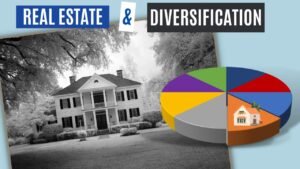
As promised in my YouTube video on residential real estate investing, which you can watch here:
This is a list of all my resources for learning how residential real estate investing works & where to get data to make educated decisions regarding an investment (rental) property.
The 1st two on the list will help you understand the basics of what you need to consider when investing in real estate. YOU SHOULD START THERE FIRST, & THEN MOVE ONTO THE DATA SOURCES
1) BiggerPockets.com
Listen to their podcast, watch their Youtube videos, participate in their forums, & build a network in the markets that interest you.
2) Read books – A lot of them
My favorite books to start learning about real estate investing are:
How to invest in real estate – the ultimate beginner’s guide to getting started Link
- What every real estate investor needs to know about cash flow….& 36 other financial measures Link
- The book on investing in real estate with no (& low) money down Link
There is a treasure trove of data out there as well. Some are paid but a great deal of it is free. By far the best source of information is to reach out to a real estate agent or property manager in the area you’re interested in. If you find a good one, they’re going to fully understand their market & can help you understand the nuances of the market to find the best investment to meet you goals.
3) Redfin.com Data Center
This is my favorite site for data. They have data visualizations at the metro level for most of what you need to assess the current state of the housing market in a particular metro. There is also some data at the city & zip code level as well.
They have housing data such as:
- Median sales price
- Days on market
- % of listing w/ price drops
- Months supply of inventory
- Avg. sale to list ratio
There is also data on:
- Migration
- New construction
- Investor market share
- Market competitiveness
- Job opportunities
4) Scopeout.io
You can view the median sales price, days on market, median household income & unemployment rate by zip code for each major metro area.
This is a huge help for me to find places that meet my budget but also have strong resident income & employment metrics.
It helps narrow down where you want to search for potential properties rather than just canvasing anything in zillow or redfin
5) National Association of Realtors (NAR)
Here you can only get the last couple months of data for free. If you’re like me & want to view trends over at least a 5-10 year period, you’re gonna have to pay up; & it’s not cheap.
Because of this, I don’t use this source to get a market baseline. Rather I use it to get weekly & monthly updates on the housing market.
6) Bureau of Labor Statistics (BLS)
For Employment data/trends.
7) Census.gov
Vacancy rates by metro.
The main drawback is that census data comes on a multi-year lag (Currently the data on the site is from the 2015-2019 American Community Survey)
8) Censusreporter.org
This site gives you a ton of data on the residents (your potential renter population) of a specific city including distributions across age, sex, race, education levels, incomes, owner vs renter % & more
The main drawback is that census data, which this site uses, comes on a multi-year lag (Currently the data on the site is from the 2015-2019 American Community Survey)
9) Bestplaces.net
A lot of the same information as censusreporter.org but also has information on crime, weather/climate, political preferences, schools, cost of living & more
9) Realtor.com
10) HUD’s 50th percentile (Median) rent estimates by county & zip code
I use this, along with Zillow & Redfin to get an estimate of the rent I can expect for a property that I’m considering.
11) Rentometer.com
Get Our Latest Delivered To Your Inbox
You will receive 1-2 emails per month and you can unsubscribe at anytime













